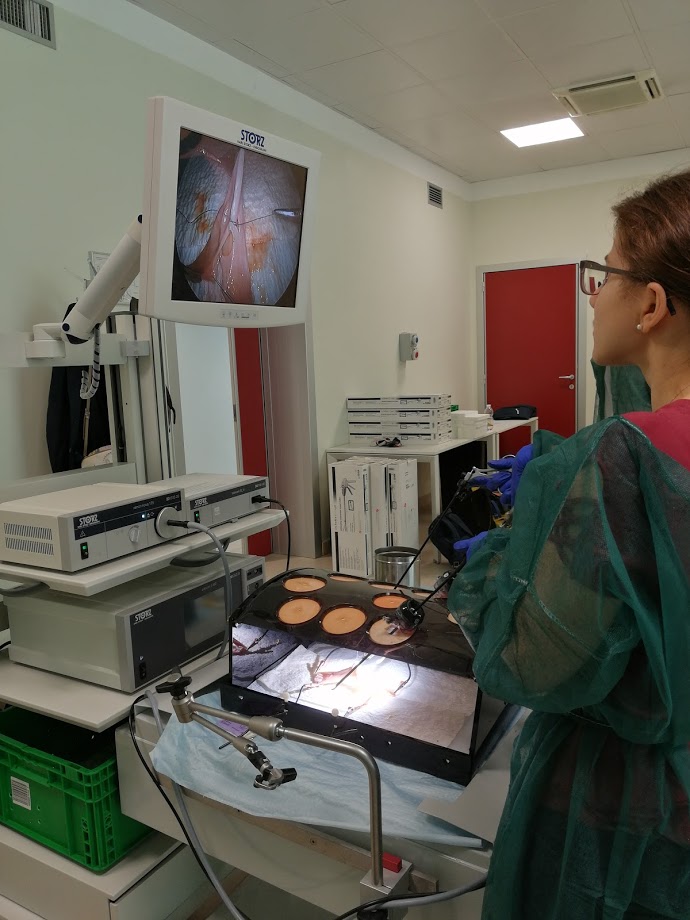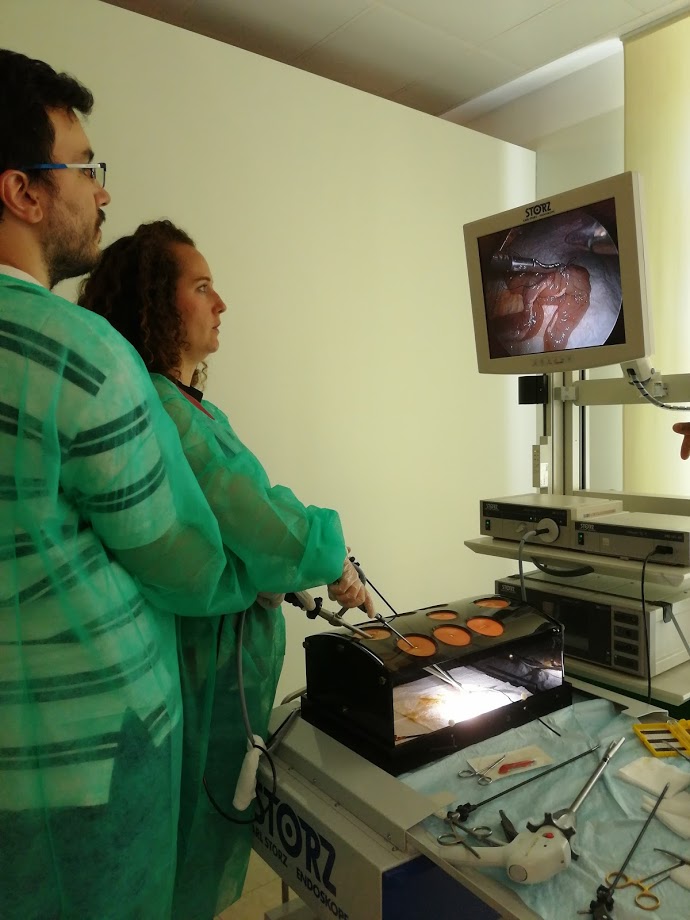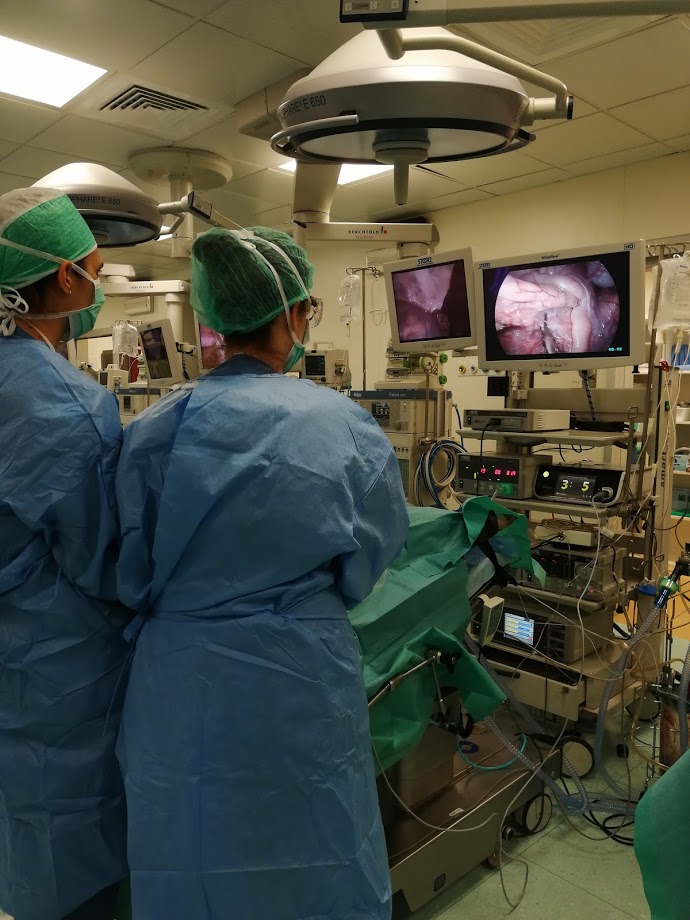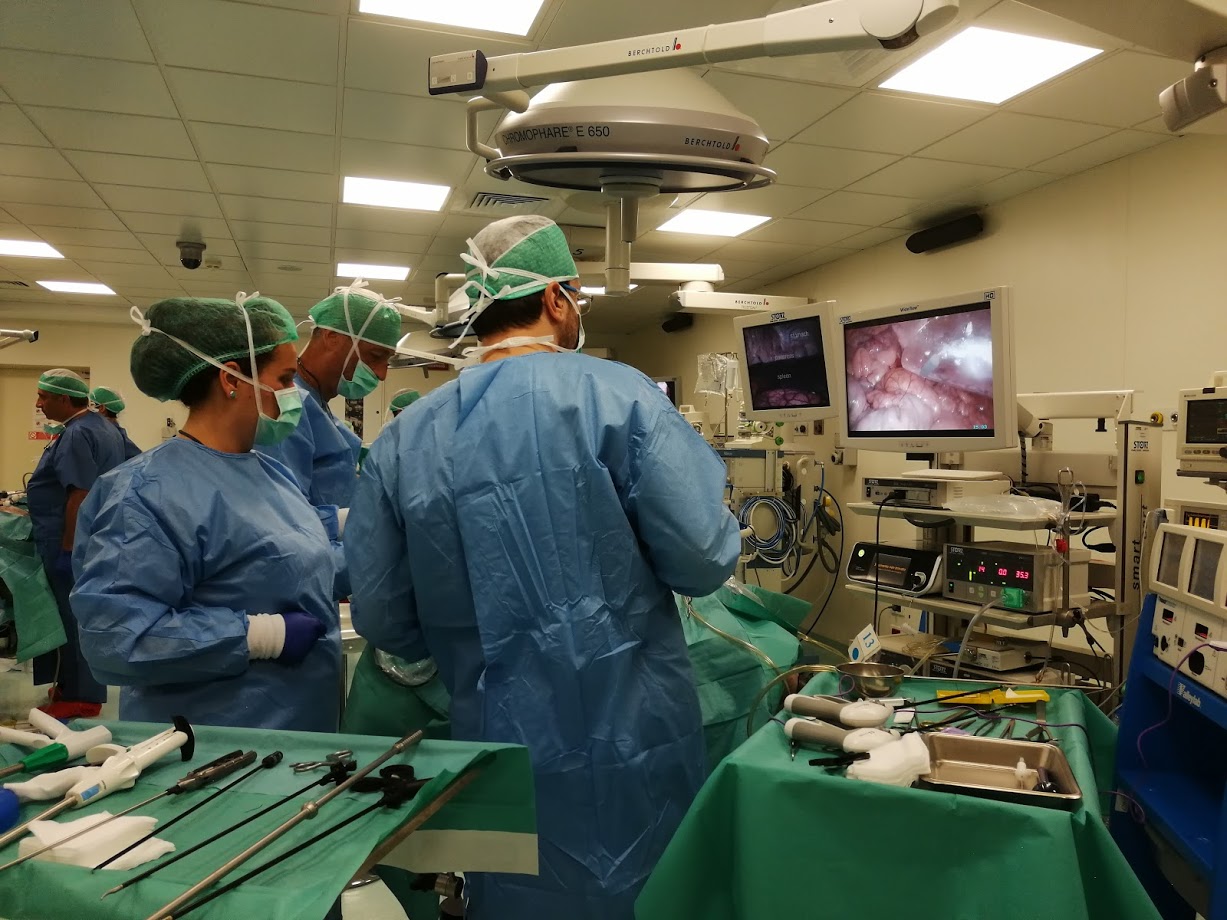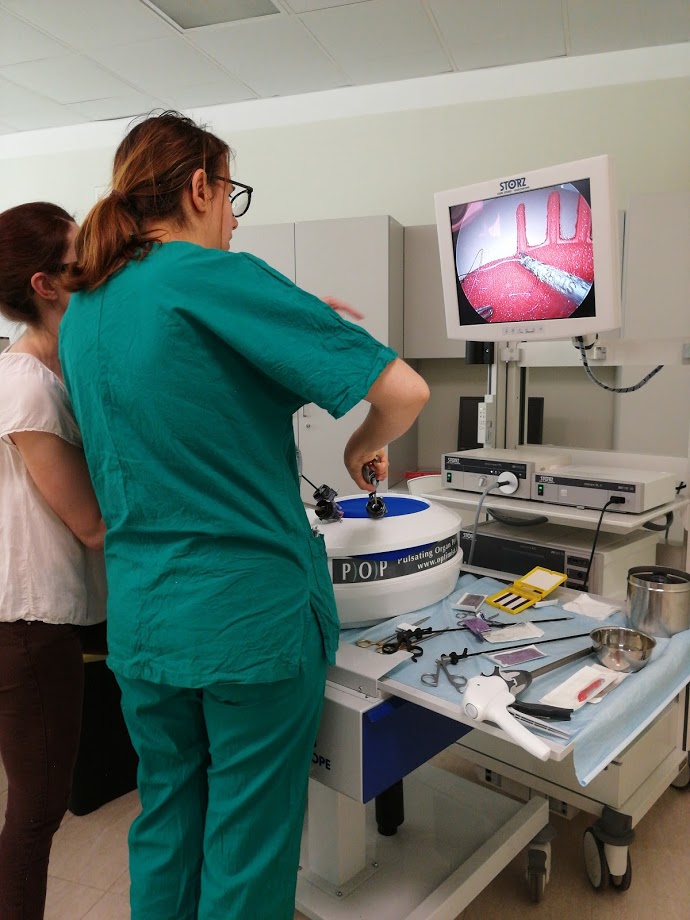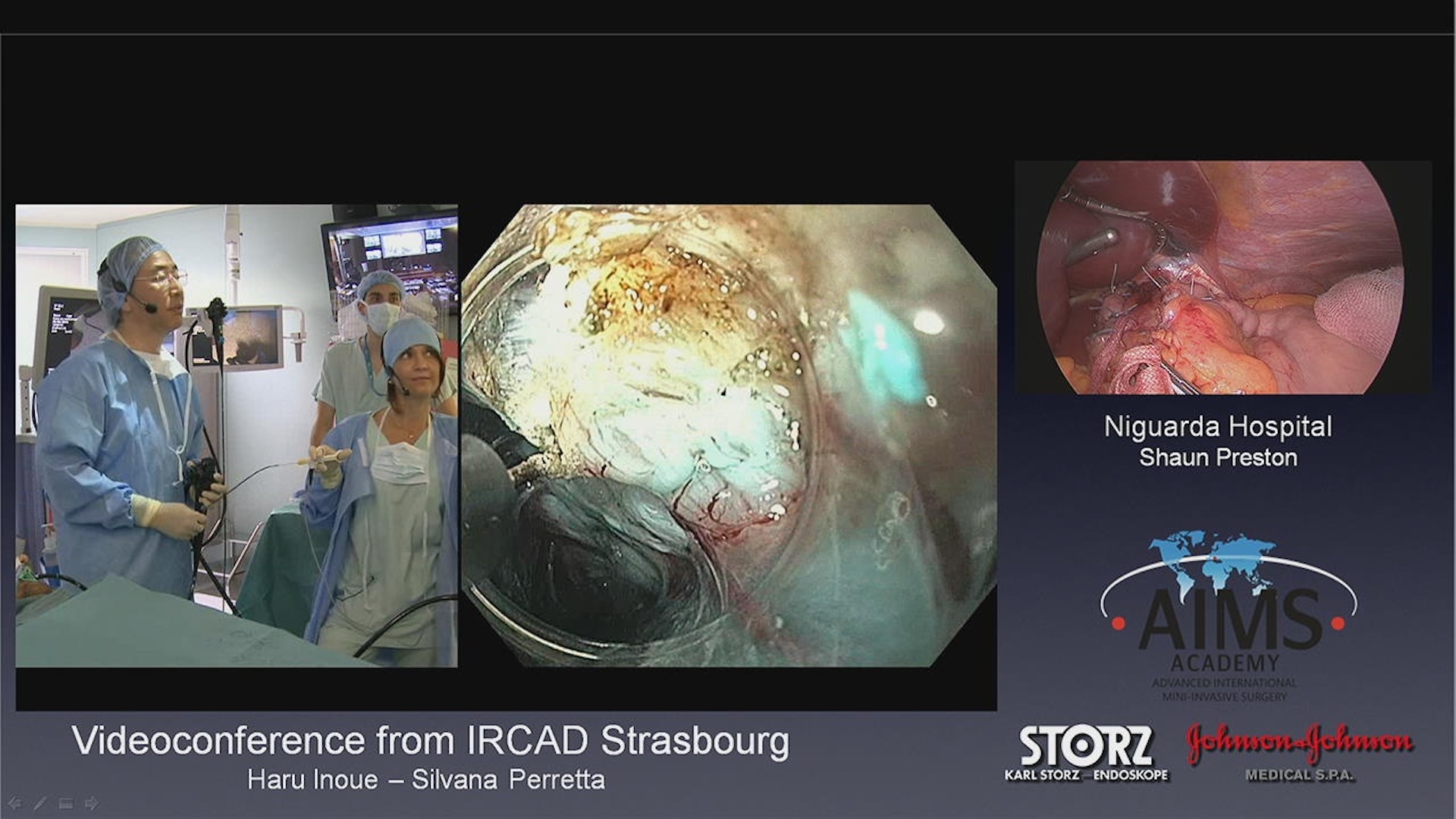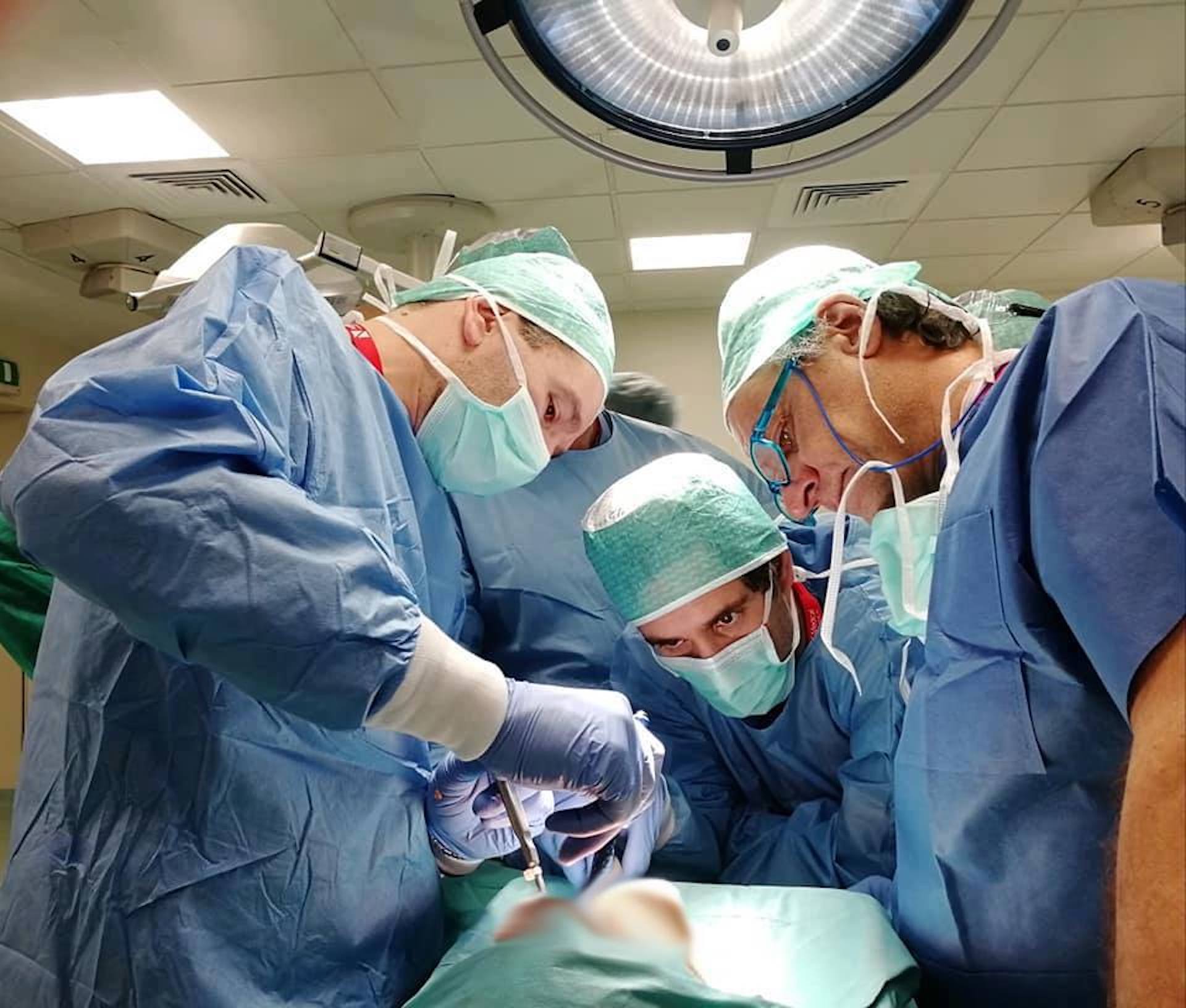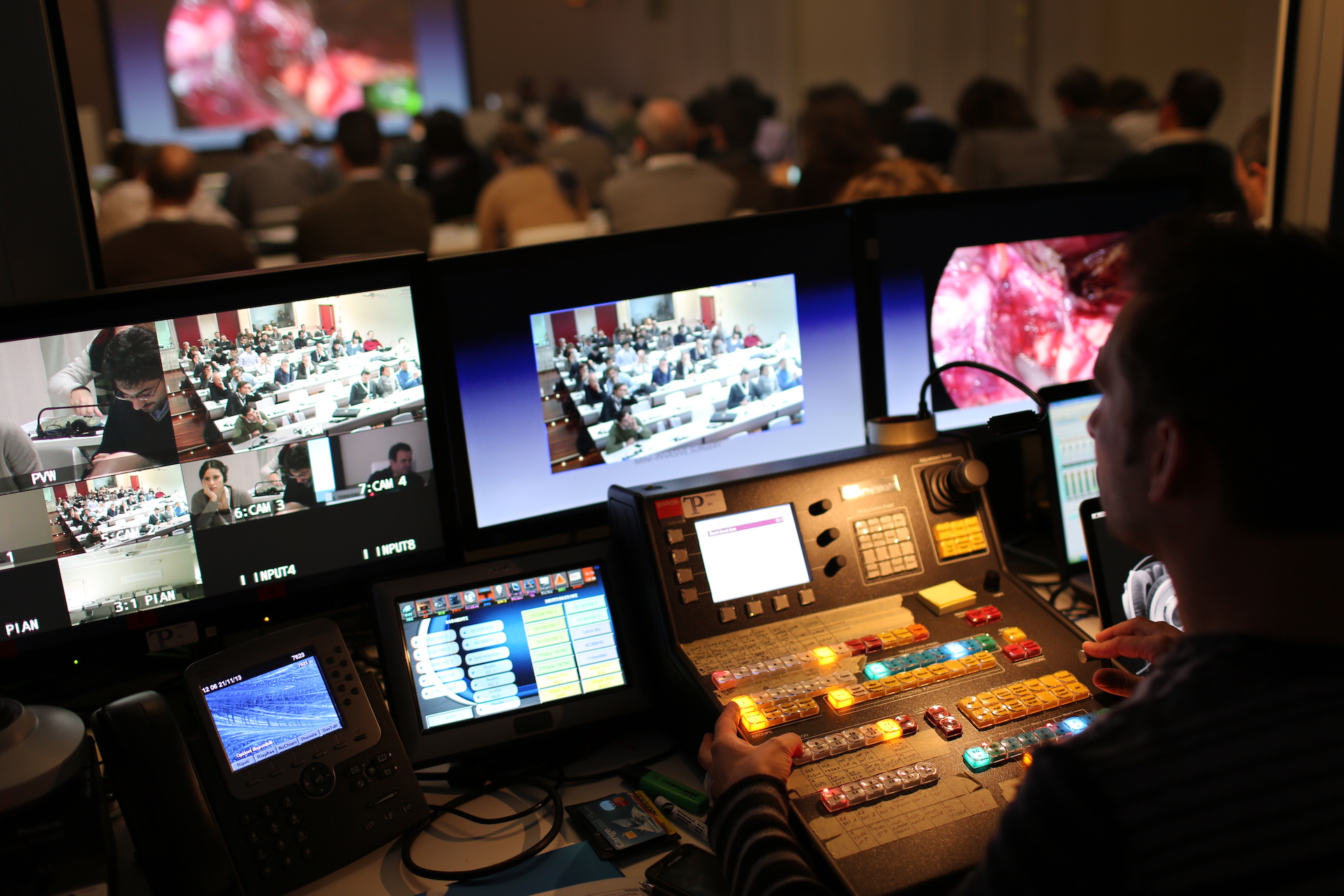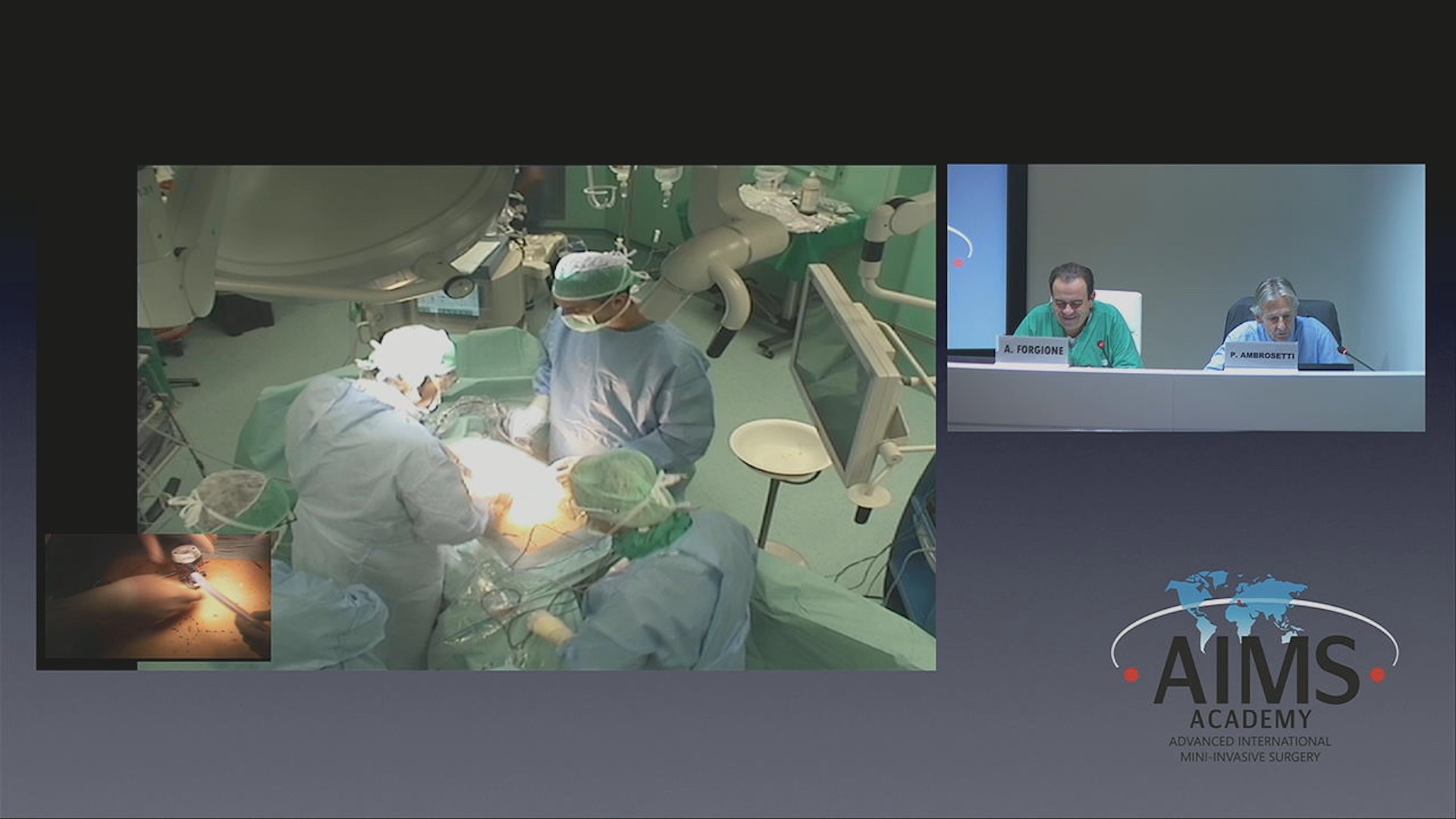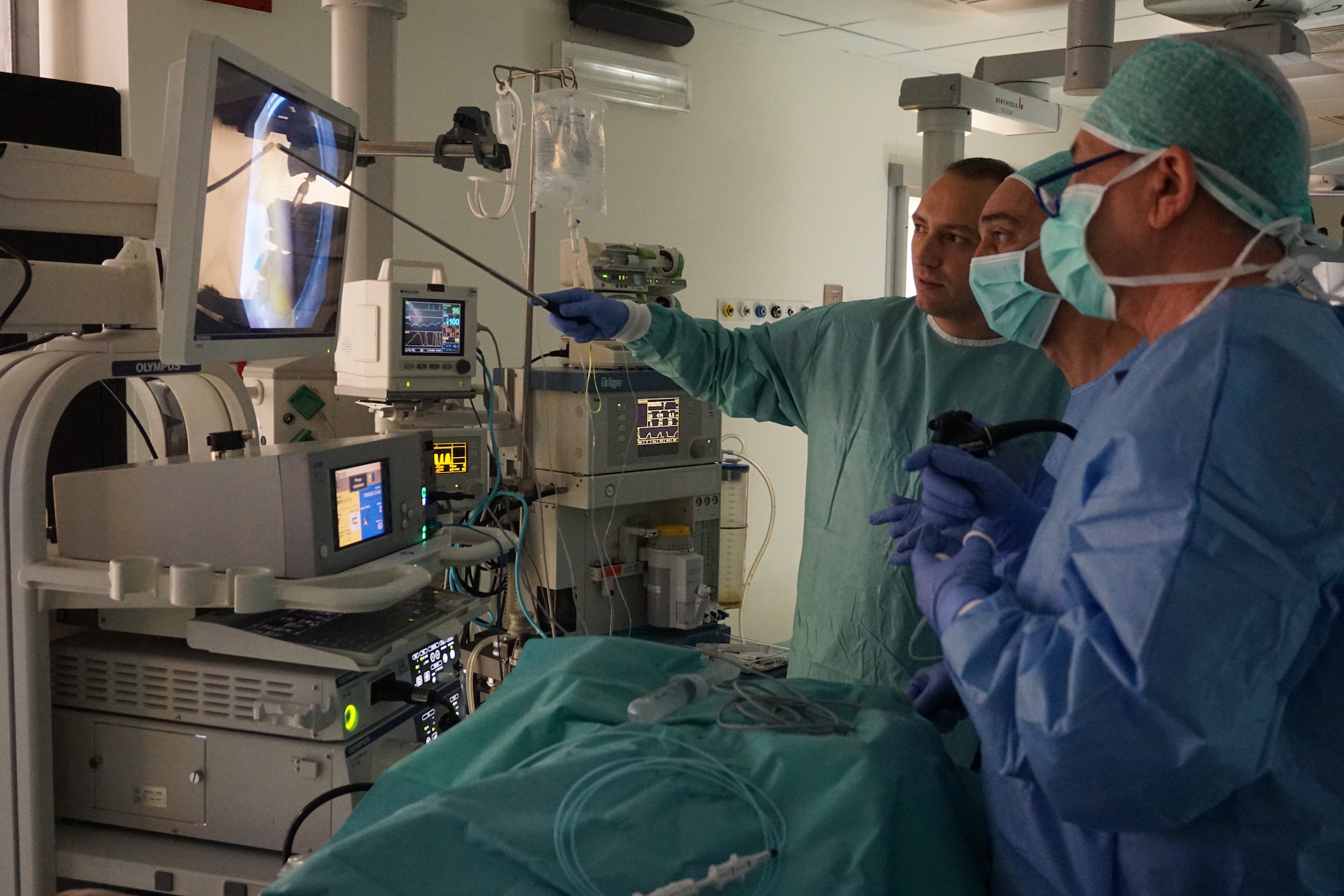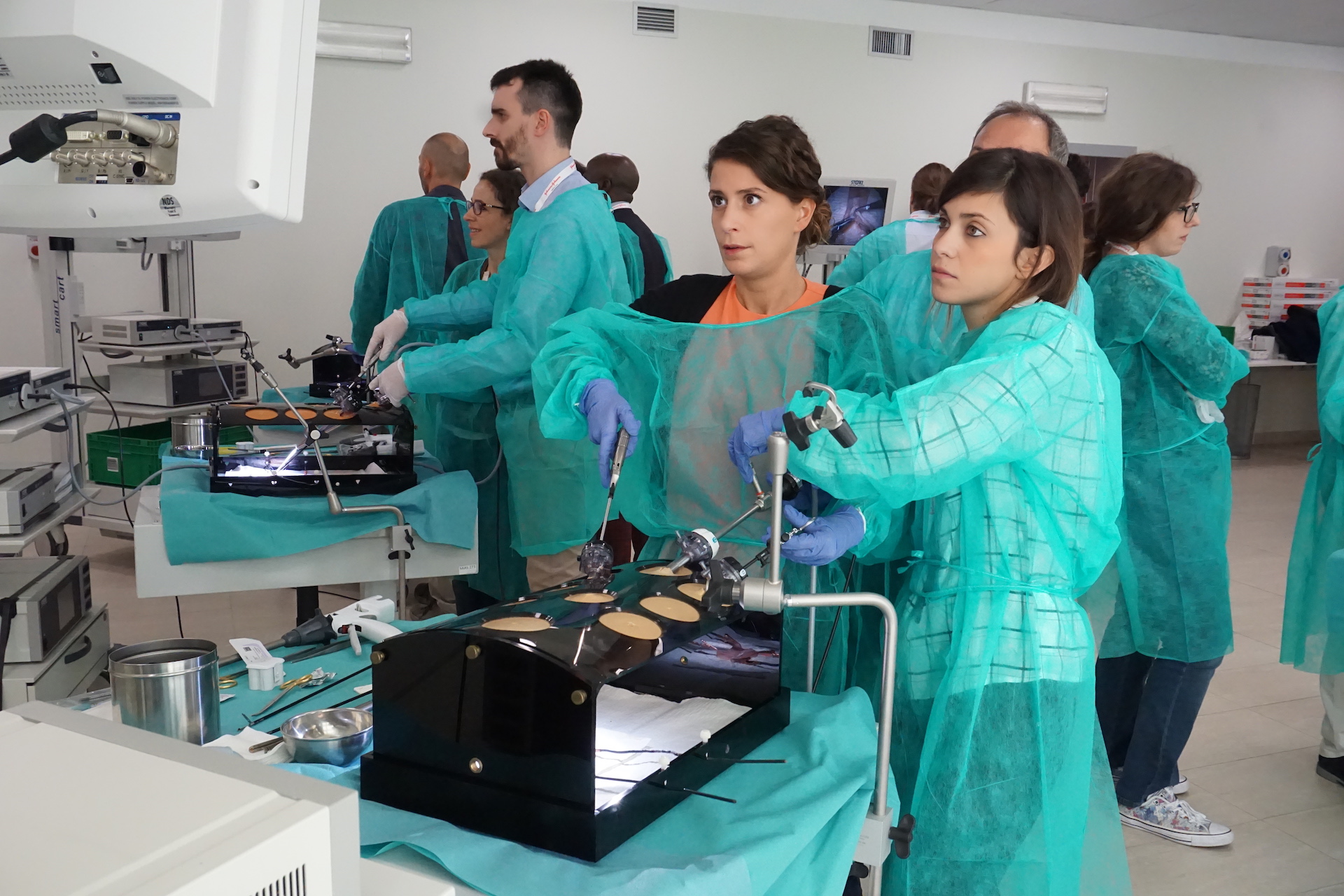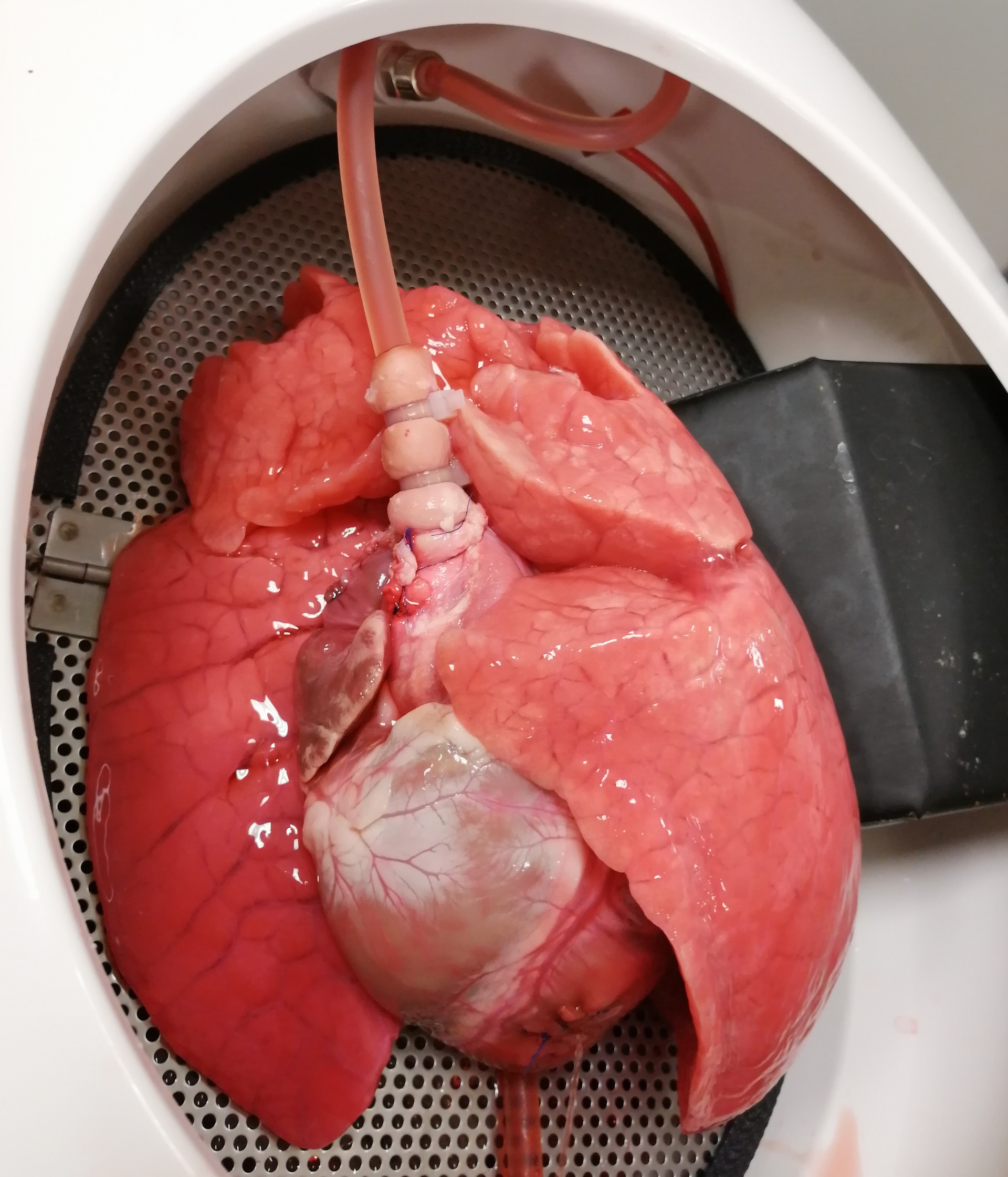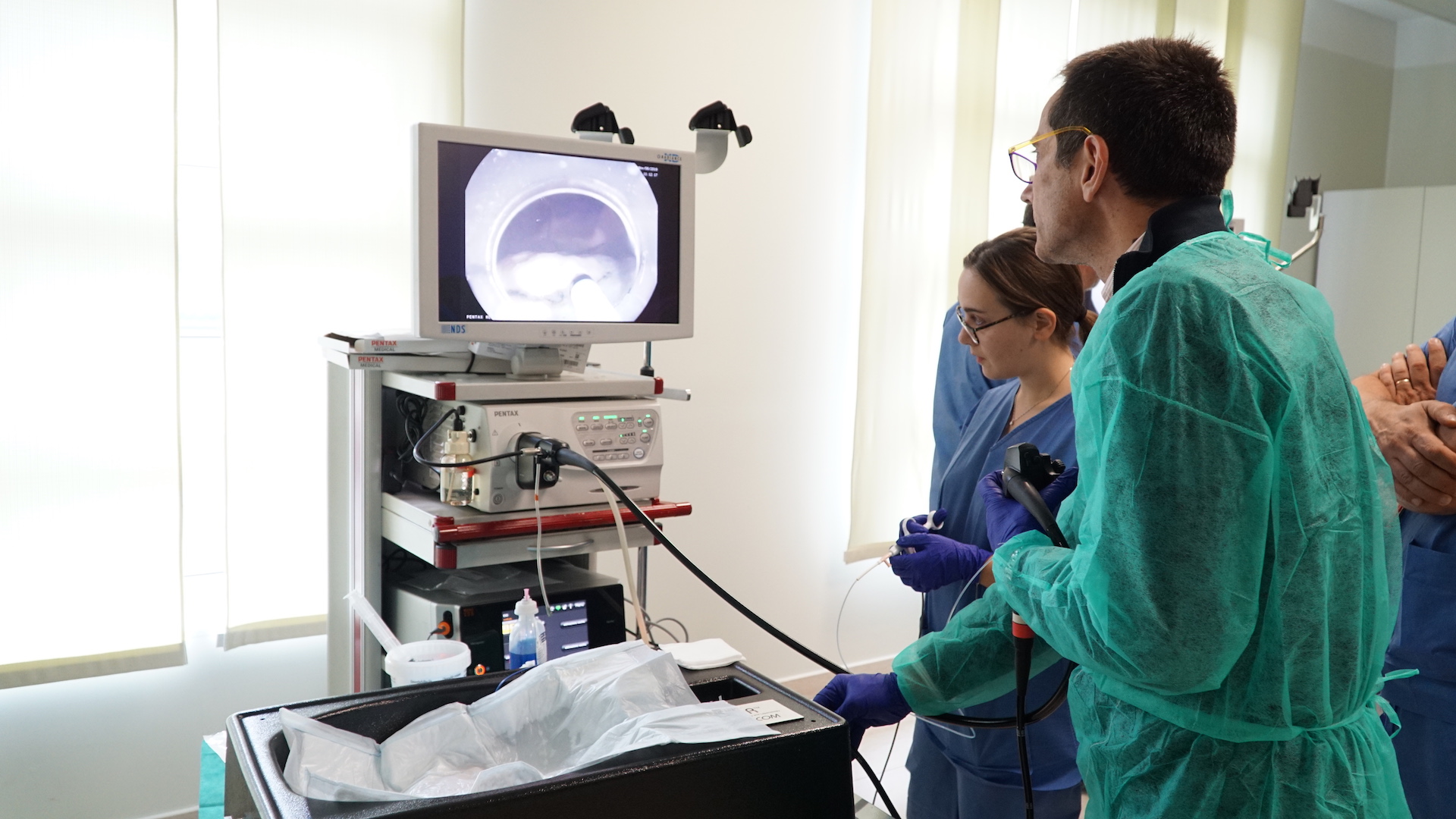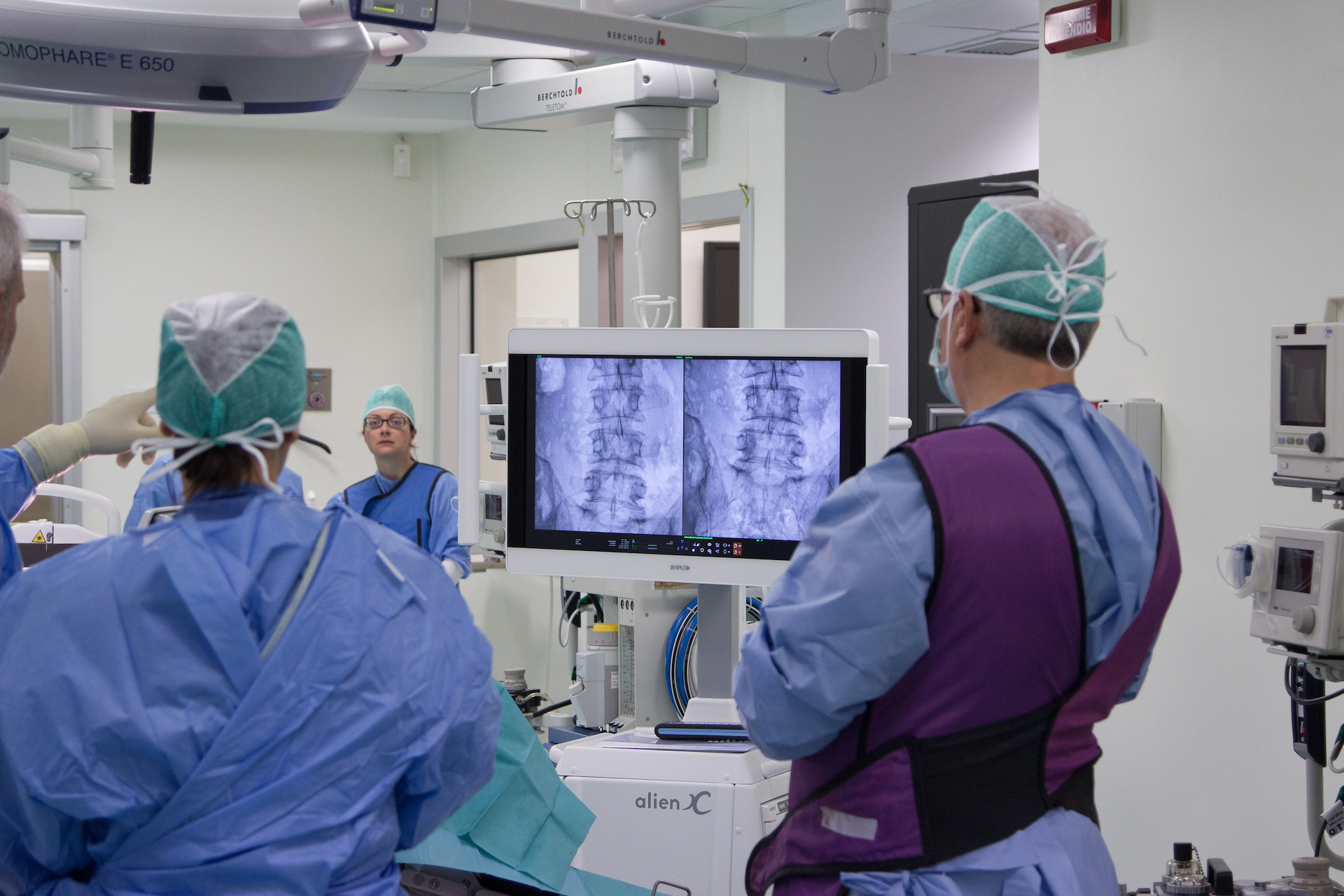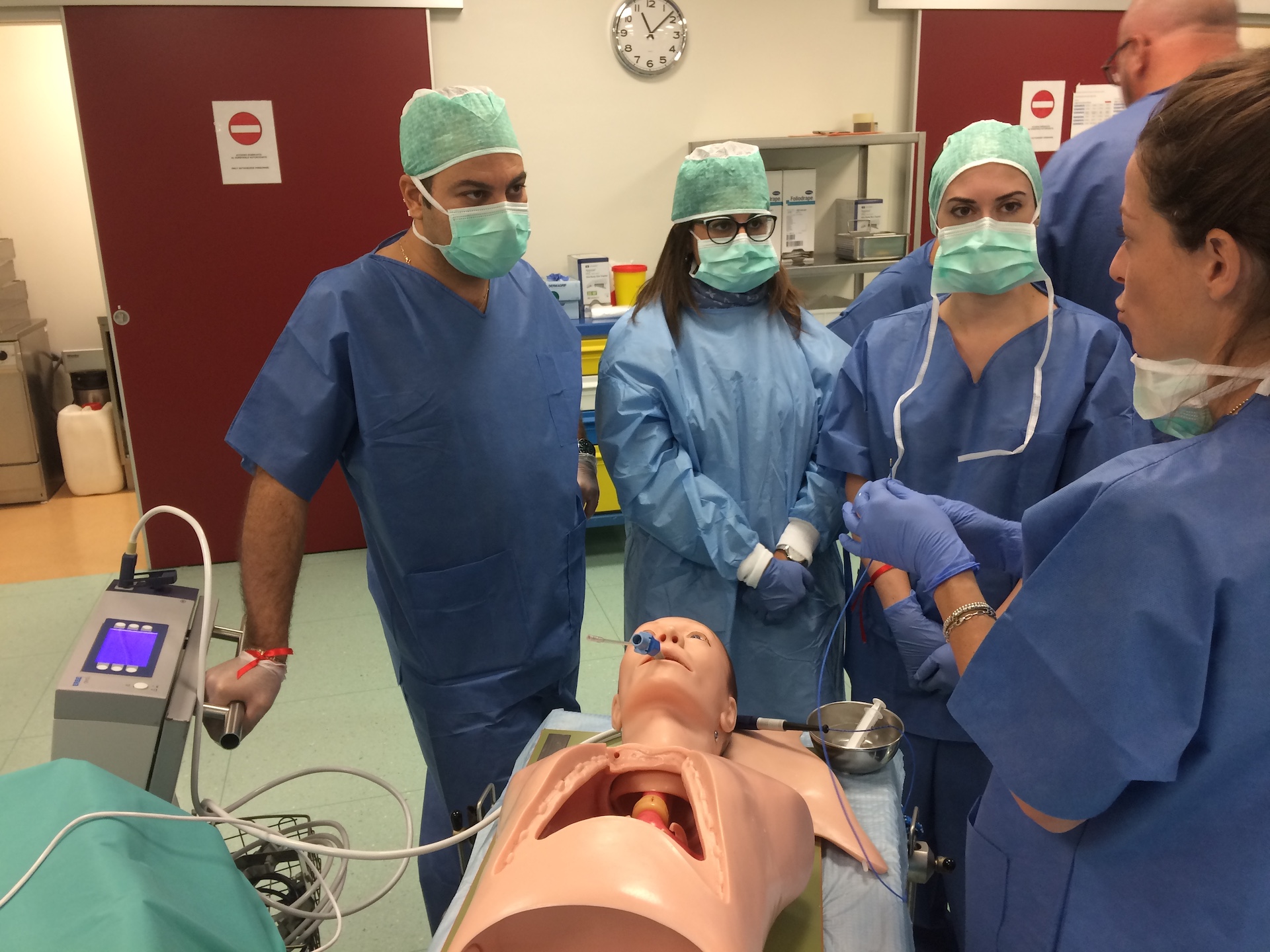COURSE FOR TRAINEES
In some states, such as the USA, the United Kingdom and France, the practical simulation in the experimental laboratory is already an integral part of the training courses for specialist surgeons.
In fact, it has been shown how training in specialized laboratories allows you to train yourself to manage peculiar difficulties of laparoscopic surgery, such as: reduction of the sense of depth, reduction of the mobility of instruments, lack of tactile feedback.
In Italy, the participation of trainees in laboratory training is on a voluntary basis.
From a survey proposed by AIMS to 200 volunteer students in 2019, it emerged that 8 out of 10 students have not had the opportunity to practice in a Wet Lab or in a Cadaver Lab in the last 3 years. In most cases, young surgeons believe that unsustainable costs and lack of free time hinder laboratory practice.
To respond to the need for training and to disseminate the opportunity for high-level practical training, in July 2019, AIMS proposed the first free, practical and open course to specialists from all over Italy, collecting more than 200 enrollments in a month.
The 28 participants extracted were guided to learn and try techniques of different complexity with their own hands, starting from the bases of intracorporeal suture on ex vivo tissues, up to intestinal anastomoses and steps of more complex resection procedures in the animal lab.
Currently, AIMS is working to develop a modular training proposal for the different experience levels of the specialty.
Subscribe to our mailing list to be updated about our courses for trainees:
References
Palter, V., Orzech, N., Reznick, R. and Grantcharov, T. (2013). Validation of a Structured Training and Assessment Curriculum for Technical Skill Acquisition in Minimally Invasive Surgery. Annals of Surgery, 257(2), pp.224-230.
Scheeres, D., Mellinger, J., Brasser, B. and Davis, A. (2004). Animate advanced laparoscopic courses improve resident operative performance. The American Journal of Surgery, 188(2), pp.157-160.
De Win, G., Van Bruwaene, S., Kulkarni, J., Van Calster, B., Aggarwal, R., Allen, C., Lissens, A., De Ridder, D. and Miserez, M. (2016). An evidence-based laparoscopic simulation curriculum shortens the clinical learning curve and reduces surgical adverse events. Advances in Medical Education and Practice, Volume 7, pp.357-370.
Celentano, V. (2015). Need for simulation in laparoscopic colorectal surgery training. World Journal of Gastrointestinal Surgery, 7(9), p.185.
Heemskerk, J., Zandbergen, R., Maessen, J., Greve, J. and Bouvy, N. (2006). Advantages of advanced laparoscopic systems. Surgical Endoscopy, 20(5), pp.730-733.
